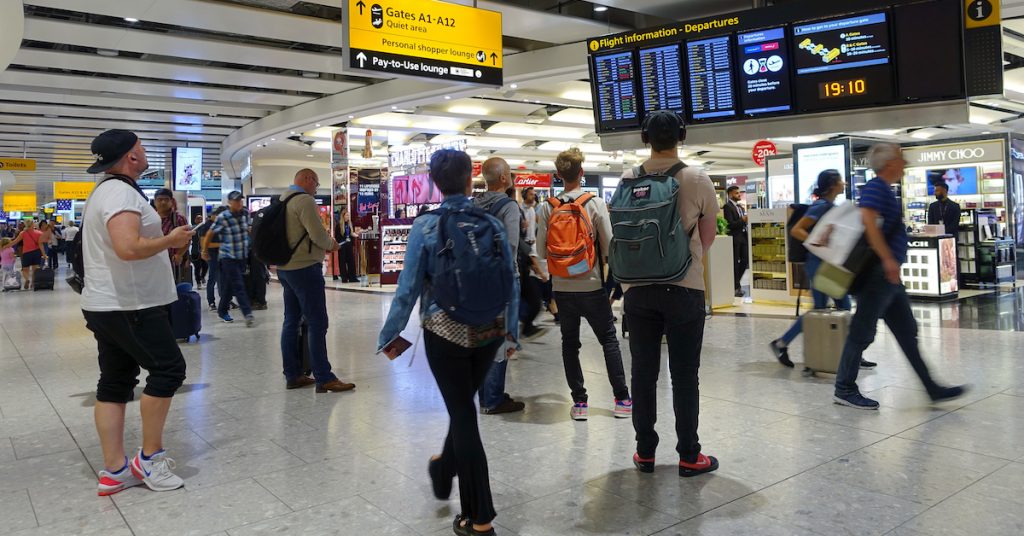The travel industry has witnessed a remarkable increase in Atol-protected bookings, marking a notable shift in market dynamics.
With the easing of travel restrictions, Atol bookings surged, outpacing pre-pandemic levels and highlighting the sector’s resilience.
Record Highs in Atol Bookings
The Air Travel Trust (ATT) report disclosed an impressive rise in Atol-protected bookings, reaching 26.63 million by March 2023. This figure surpassed the 25.9 million recorded in March 2020, reflecting substantial growth since the Covid-19 pandemic began. Notably, these numbers exceeded even those from 2018 and 2019, signalling a robust recovery in the travel sector.
The upward trend in bookings is expected to continue, with forecasts predicting further records for the period ending March 2024. The renewal of Atol licences in September 2023, authorising 31.6 million bookings, indicates a strong confidence in the market’s growth trajectory.
Air Capacity Versus Booking Trends
Despite the impressive booking numbers, airline capacity still lags behind 2019 levels, with projections suggesting it will only reach pre-pandemic figures by the summer of 2024. Eurocontrol data revealed that European air traffic reached 92% of its 2019 level in 2023 and should hit 98% this year.
Passenger numbers have also not fully bounced back, with ACI Europe reporting a 5% decline from 2019 in Europe and a 6% drop in the UK. This discrepancy underscores the travel industry’s adaptation in managing demand with limited air capacity.
Impact of Economic Factors
The economic conditions are exerting pressure on travel decisions. The cost of living crisis has become increasingly influential, as reflected in a survey conducted by the Travel Weekly Insight Report, where 76% of participants acknowledged its potential impact on holiday planning.
Despite these economic pressures, outbound travel demand remains strong, with a significant proportion of travellers opting for all-inclusive packages to manage costs. The convenience and perceived value of these packages are significant drivers behind their popularity.
Interestingly, a large portion of travellers are aiming to book outside peak seasons, indicating a shift towards more strategic planning to mitigate costs.
Consumer Habits and Preferences
Consumer habits have shifted considerably post-pandemic. According to the survey, there is a marked increase in the number of young families intending to travel, with 70% of those with children planning to holiday abroad.
This demographic shift shows a promising trend, with a considerable percentage of travellers aged 25-44 expressing a strong inclination towards booking holidays, marking a double-digit increase compared to previous years.
The preference for off-peak travel times is further underscored by three-quarters of those surveyed planning to avoid peak seasons, illustrating a tactical approach to travel amid economic uncertainties.
Future Prospects for Atol Packages
Projections for the future of Atol-protected bookings are optimistic. The data indicates a likely continued increase in market share for Atol packages, as consumer confidence in these secure travel options grows.
With the addition of more travel options and the gradual recovery of airline capacity, the industry is poised for sustained growth. The role of Atol in providing reassurance to consumers cannot be understated in this promising future outlook.
The robust framework and protective measures offered by Atol are instrumental in fostering an environment of trust, encouraging consumers to prioritise such packages when planning their travel.
Industry Expert Insights
Industry experts, including Alan Bowen, have highlighted the significant favour in which Atol bookings are held. This underscores the importance of Atol protection in the consumer decision-making process.
The broader travel sentiment, reflected in the Travel Weekly Insight Report developed with Deloitte, indicates no decrease in outbound travel appetite, reinforcing the strength of Atol packages in the market.
This insight is crucial as it highlights the adaptability and resilience of the travel sector, which continues to navigate complex challenges, leveraging consumer trust as a key asset in maintaining growth.
Economic Considerations Impacting the Travel Industry
The economic landscape remains a pivotal factor in travel planning, with travellers becoming increasingly budget-conscious. More than half of those planning to travel intend to spend as much or more than in previous years, despite economic constraints.
Travellers are seeking more value-oriented options, with a distinct lean towards all-inclusive deals that offer predictable costs. The propensity for strategic planning is evident as many opt for budget travel options and reduced travel durations.
The impressive growth in Atol-protected bookings reflects the travel industry’s resilience and adaptability. As economic factors continue to play a significant role in shaping consumer behaviour, Atol packages offer a secure, value-driven option for travellers.

